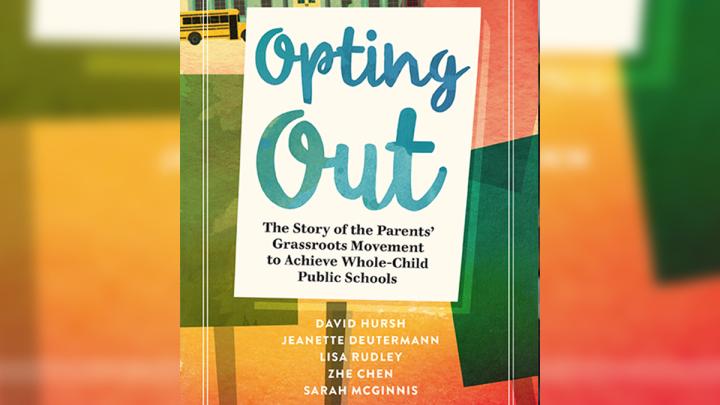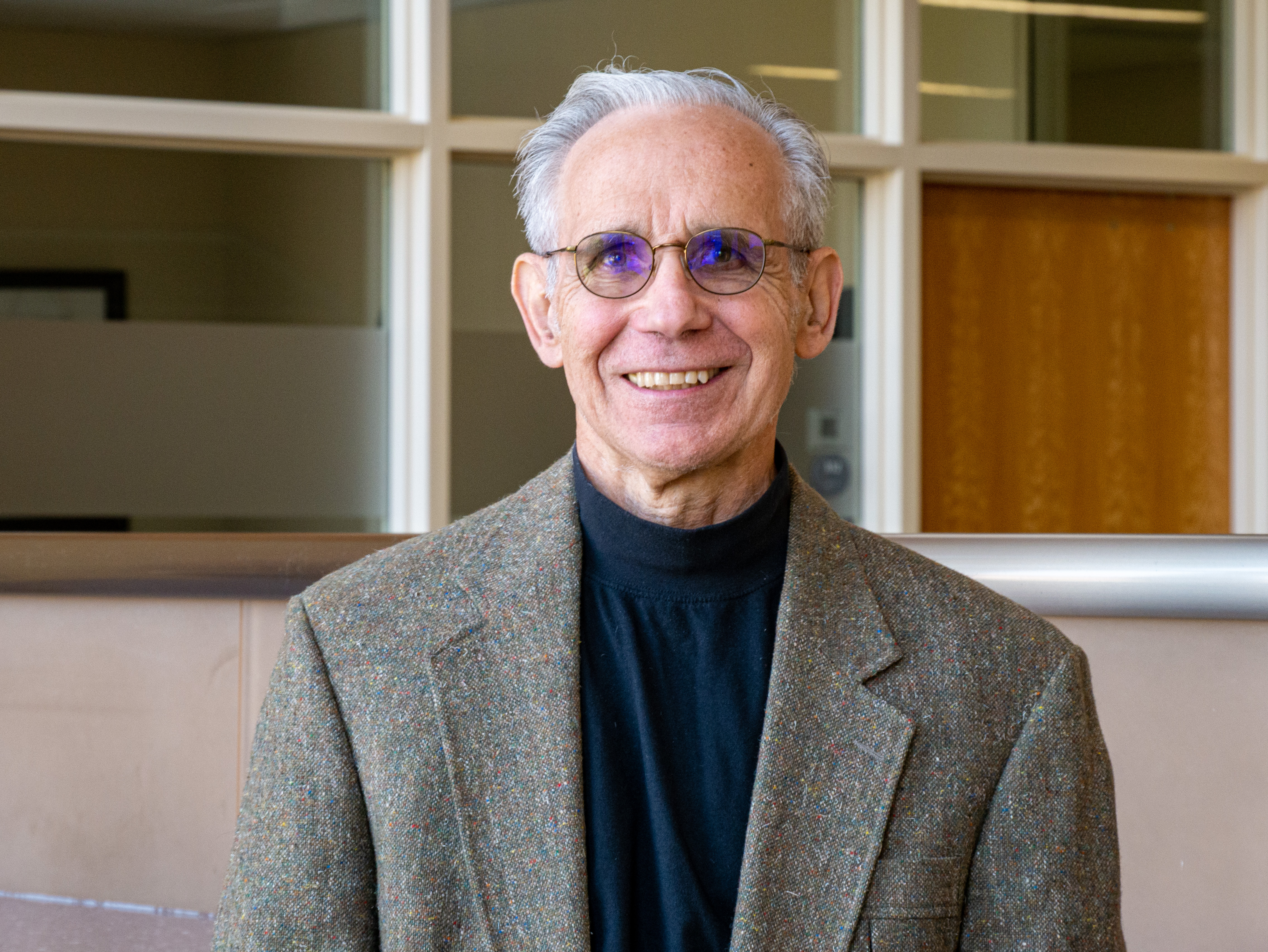New book focuses on the success of New York State’s opt-out movement

Authors seek to inspire parents to become education activists beyond standardized testing
Parents need to work together to support school and legislative reforms that lead to positive educational experiences for their children. As the organization of social movements—like the opt-out movement of standardized tests in New York State and teachers’ strikes across the country—share many similarities, University of Rochester Warner School of Education scholars have joined efforts with parent activists to publish a book to help guide parents and others in working together to create, organize, and gain synergy with similar grassroots movements to affect education policy.
Professor David Hursh, doctoral student Zhe Chen ‘18W (MS), and alumna Sarah McGinnis ‘18W (MS), all of the University’s Warner School of Education, have collaborated with two parent leaders in the opt-out movement—Jeanette Deutermann and Lisa Rudley—to coauthor Opting Out: The Story of the Parents’ Grassroots Movement to Achieve Whole-Child Public Schools (Myers Education Press, January 2020). The content is drawn from the parents’ experience and work in heading up two successful opt-out organizations in New York State: Long Island Opt Out (LIOO) and New York State Allies for Public Education (NYSAPE).
New York State remains a national epicenter for the opt-out movement of standardized tests. High-stakes testing has been a rising, common feature in K-12 schooling with state legislation requiring since the mid-1990s that virtually all students pass five Regents exams in four different subjects in order to graduate from high school. The transformation of statewide exams from low- to high-stakes testing then continued over the decades, with federal legislation requiring since 2002 that states test students in third through eighth grade in mathematics and English language arts, with the test scores being used to evaluate students and teachers.
During the past five years, New York parents, students, and teachers have increasingly resisted those exams, known as the Common Core State tests. Families have actively opted out one in five students statewide—or 20 percent—and 50 percent of students in Long Island of the state exams. This high and steady opt-out rate has reduced the value of the tests for parents, students, and teachers and increased the possibility for educators to focus on the whole child, not test scores. Education historian and activist Diane Ravitch, president of the Network for Public Education, has endorsed the book, stating in her recent blog post, “this is the book you will want to read if you are a parent, a teacher, a teacher educator,” and she lauds the parents for their efforts.
Ravitch continues: “The public needs to understand how a small group of parents, without financial support, were able to persuade the parents of about 200,000 students to join them in refusing to submit their children to tests that lasted for hours and had no diagnostic value whatever for the students. They and the other leaders of this movement are heroes of our age.”
The five-chapter volume takes a closer look at how the opt-out movement has gained momentum in New York State, the impact it has had on education policy in the past five years, and the lessons to be learned from resisting policies. The rise of high-stakes testing in New York and across the nation has narrowed and simplified what is taught, while becoming central to the effort to privatize schools. However, it and similar reform efforts have met resistance, with New York as the exemplar, for how to repel standardized testing and invasive data collections.
The book tells the story of two parents becoming education activists in the opt-out movement and how others—students, parents, teachers—have joined them in resisting high-stakes testing in New York State. The story of parents resisting not only high-stakes testing but also privatization and other corporate reforms parallels the rise of teachers nationwide going on strike to demand increases in school funding and teacher salaries. The success of both the opt-out movement and teacher strikes reflect the rise of grassroots organizing using social media to influence policymakers at local, state, and national levels.
In the volume’s foreword, American Educational Research Association (AERA) past president, Amy Stuart Wells, of Teachers College, Columbia University, points out that the number of standardized tests, produced by global corporations, and their influence on what children learn in school has grown exponentially as more state and federal policies are passed stating that these measures of student learning are the only ones that matter anymore.
“The story of the United States surrendering its control over how our children are educated to global corporations, and the efforts of some advocates to fight back, are profiled in this important book, which presents a case study of New York State-based movement of parents, educators and local advocates to enable students to opt out of the state-mandated tests,” she writes. “The larger context of New York and other states with similar stories is also important in helping us understand how our nation became so addicted to standardized testing and why it is so politically difficult to recover, detox and embrace education reform that supports and democratizes meaningful teaching and learning.
 The voices of parents rarely get told, according to Hursh, who has written and lectured extensively on the assault of public education and the dangers of high-stakes testing and has been fighting for democratic schools for his entire academic career. Hursh and others set out to change that trend with this latest publication.
The voices of parents rarely get told, according to Hursh, who has written and lectured extensively on the assault of public education and the dangers of high-stakes testing and has been fighting for democratic schools for his entire academic career. Hursh and others set out to change that trend with this latest publication.
“We’ve tried to take these two parents’ stories and put them into a political and historical context so that others can better understand the politics of testing,” explains Hursh. “The opt-out movement is not just against the standardized tests, though it seems we have digressed to this conversation. It’s also about how this strong grassroots movement makes possible the ways of teaching and learning that are not currently possible because of testing.”
Hursh also emphasizes the importance and power of parents working together to support school reforms and groups that lead to good educational experiences for children. “Parents need to be a part of the process and realize that through organizing and having authentic discussions with others, they can have a positive effect on education,” Hursh adds.